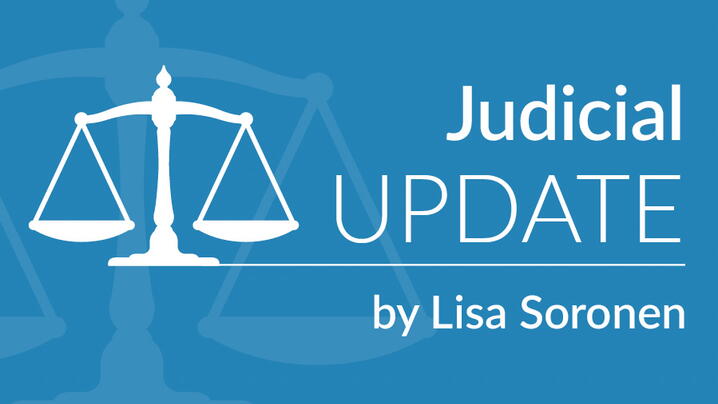
by Lisa Soronen, executive director, State and Local Legal Center
The same day (on March 26, 2018) that U.S. Commerce Secretary Wilbur Ross announced his plan to add a question about citizenship to the 2020 census, California filed a complaint seeking an injunction preventing the question from being added. The next day, New York Attorney General Eric Schneiderman announced he would lead a multi-state lawsuit challenging the question.
In December 2017, the Department of Justice (DOJ) requested that a question about citizenship be added to help DOJ more effectively enforce Section 2 of the Voting Rights Act, which prohibits discrimination on the basis of race in voting. A citizenship question has not been asked in the biennium census since 1950.
While the details of the multi-state lawsuit are unknown, as no complaint has yet been filed, California’s allegations are spelled out in its 12-page complaint.
The U.S. Constitution requires an “actual Enumeration” of all people to apportion congressional seats. Census data is also used to distribute billions of dollars in federal funding to local and state governments.
As a practical matter, California is concerned that a question about citizenship will “repress responses from noncitizens and their citizen relatives.” California claims it has more foreign-born residents (more than 10 million) and noncitizens (more than 5 million) than any other state. “Undercounting the sizeable number of California noncitizens and their citizen relatives will imperil the state’s fair share of congressional seats and Electoral College electors and will cost the state billions of dollars in federal funding over the next decade.” California asserts inclusion of this question will likely cause it to lose congressional seats for the first time in its history.
California makes two legal arguments against adding a citizenship question to the census. First, California claims that adding this question violates the “actual Enumeration” clause of the Constitution. “Inclusion of the question. . .directly interferes with [the federal government’s] fulfillment of [its] constitutional responsibility, as delegated by Congress, to conduct an ‘actual Enumeration’ of the U.S. population.”
Second, California claims that the decision to add a question about citizenship violates the Administrative Procedures Act, which prohibits federal agency action that is “arbitrary, capricious, an abuse of discretion, or otherwise not in accordance with law,” “contrary to constitutional right, power, privilege, or immunity,” or “in excess of statutory jurisdiction, authority, or limitations, or short of statutory right.” California claims that inclusion of the citizenship question is “all of the above.”
California also argues that an undercount will decrease the accuracy of census data available to prove vote dilution under Section 2 of the Voting Rights Act.
Census paper questionnaires should be finalized for printing by May 2019.
Related Resources
The Critical Role of Local Governments in Census Updates. This 2017 blog post looks at how look governments can help create a more accurate census by ensuring that address data is up to date.
Census 2010 Campaign. This document from 2010 details the strategy that the city of North Miami, Florida, took following the 2000 census when only 56 percent of the city's population filled out the census questionnaire.
2020 Census Funding Remains at Risk. This 2017 article explains how the lack of funding at the federal level could affect the accuracy of the census and negatively effect local governments.
New, Reduced Membership Dues
A new, reduced dues rate is available for CAOs/ACAOs, along with additional discounts for those in smaller communities, has been implemented. Learn more and be sure to join or renew today!
